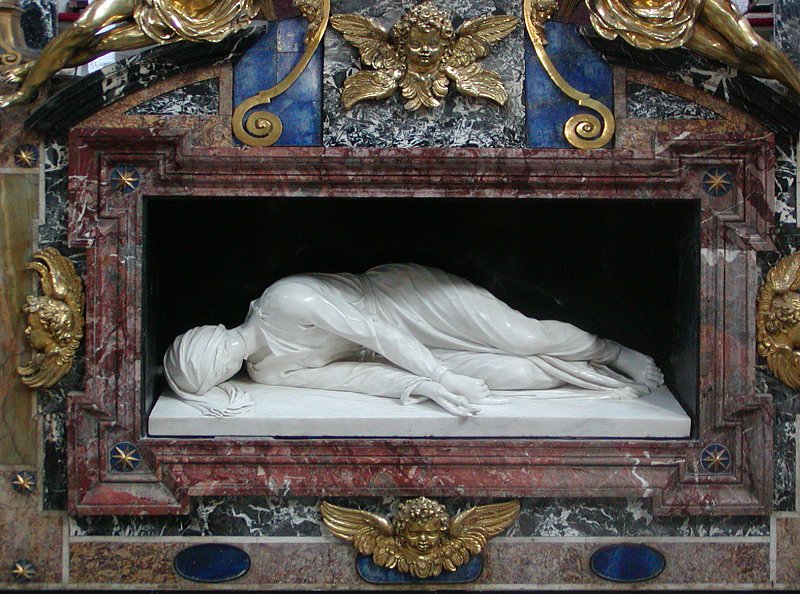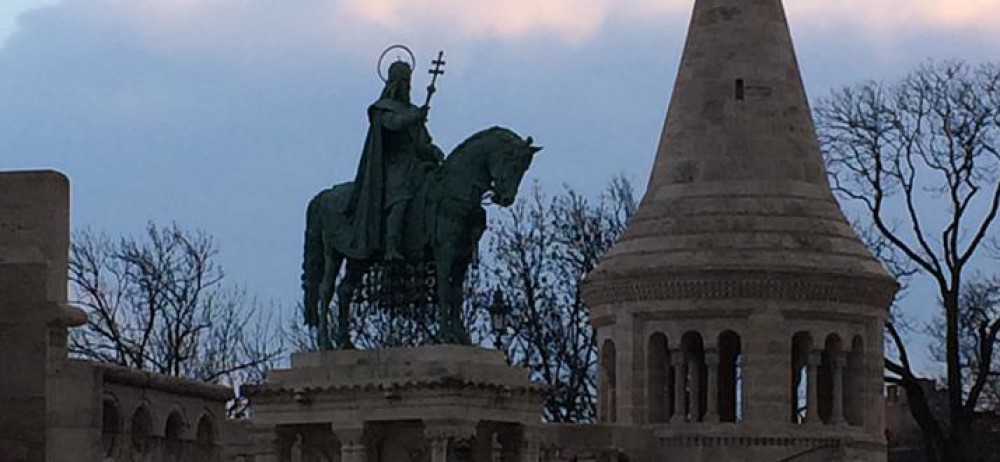
the sculptor Carlo Maderno attended the opening of St. Cecilia’s tomb in 1599 and then based his sculpture of the body on what he saw: the saint lying on her side with her arms extended and her throat cut, as if she had been dropped to the ground. The statue is now displayed beneath the high altar of the church in the Trastevere neighborhood of Rome.
Saint Cecilia is the patroness of musicians. Her feast day is celebrated on November 22. She is said to have been beheaded with a sword. An early Roman Christian church, Santa Cecilia, was founded in the 4th-century AD in the Trastevere section of Rome, reputedly on the site of the house in which she lived. The legend about Cecilia’s death says that after being struck three times on the neck with a sword, she lived for three days, and asked the pope to convert her home into a church. Cecilia was buried in the Catacomb of Callixtus, and later transferred to the Church of Santa Cecilia in Trastevere. In 1599, her body was found still incorrupt, seeming to be asleep.
She is associated with music and musicians because she “sang in her heart” during the wedding that her parents forced her to make with a pagan man whom she was able to convert on their wedding night or shortly thereafter. She and her husband were both quickly martyred.
Her feast day became an occasion for musical concerts and festivals that occasioned well-known poems by John Dryden and Alexander Pope and music by Henry Purcell (Ode to St. Cecilia); several oratorios by Marc-Antoine Charpentier (In honorem Caeciliae, Valeriani et Tiburtij canticum; and several versions of Caecilia virgo et martyr to libretti probably written by Philippe Goibaut); George Frideric Handel (Ode for St. Cecilia’s Day); Charles Gounod (St. Cecilia Mass); as well as Benjamin Britten, who was born on her feast day (Hymn to St Cecilia, based on a poem by W. H. Auden). Herbert Howells’ A Hymn to Saint Cecilia has words by Ursula Vaughan Williams; as well as many, many others.
